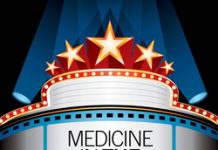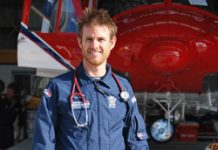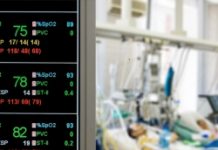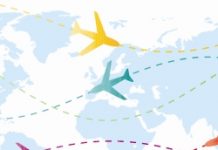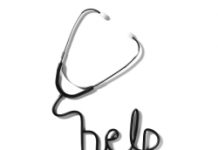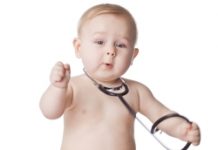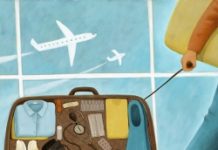 In October 2012 three junior doctors set off with the aim of driving Tess, their 1992 Land Rover Defender, from Cornwall, their home and place of work, to Cape Town.
In October 2012 three junior doctors set off with the aim of driving Tess, their 1992 Land Rover Defender, from Cornwall, their home and place of work, to Cape Town.
At the time of writing, they were in their 28th country and 19,973rd mile, having traversed Europe, negotiated the Mediterranean by way of a ferry from Turkey to Egypt, tracked up the Nile through the Sudan into Ethiopia, and followed the great rift valley south from Somalia.
Sebastian Wallace, Richard Wain-Hobson and Daniel Nuth aim to raise money for Medicins Sans Frontiers and Gondar Ethiopia Eye Surgery (GEES) – a UK based charity that is establishing a centre of ophthalmological excellence in northern Ethiopia.
They are also visiting a number of hospitals and health organisations along the journey – including a one-month general medical placement in Iganga Hospital, Uganda and participation in the C.R.A.D.L.E. Project in Malawi – an Africa-wide screening and referral project for pre-eclampsia.
So far they have almost lost the car to a sinking Turkish salt lake, found themselves in the thick of the political upheaval in Greece and Egypt, repaired 16 punctures and a high speed blowout on the mountain roads of Ethiopia.
We asked each of them to write us a diary entry whilst on the road –
Bandits – Richard Wain-Hobson
Today we reached our first tarred road in Kenya. Crumbling, potholed – we didn’t care. It has taken us thirteen days of driving from Addis Ababa, Ethiopia’s capital, and the road has been long and hard.
After 800 remote and barren kilometres following the east coast of Lake Turkana, we reached our first Kenyan settlement. A few kilometres west of the village one of our tyres succumbed to the sharp terrain. As we stopped to swap wheels, a group of children from church bounced past, the priest driving. We were tightening our last wheel nut as the distinctive crack of gunfire rang out ahead. After a quick discussion we decided to investigate.
We rounded the next corner cautiously. Their 4×4 was splayed at an odd angle across the road. The children were cowering behind the car, silent with terror. The priest staggered towards us, cradling his arm. His brow was split and bleeding; he looked dazed.
Despite the language barrier, we managed to quickly ascertain what had happened. Six bandits with AK47s had opened fire indiscriminately. No one was hit. They had assaulted the priest, and stolen what they could. Seconds before we had rounded the corner they had fled into the bush. Without hesitation we bundled everyone into our Land Rover. We sped back down the treacherous piste with eleven people aboard, and were soon back at the military base in the village we had just passed.
The Captain had also heard the gun fire, but the army had no vehicles with which to respond. They begged the use of our Land Rover, and under their protection we returned to the stricken 4×4, armed soldiers on the roof. On closer inspection it was riddled, bullet holes through the engine block, children’s compartment, and two inches above the driver’s head. The priest uttered a prayer under his breath. We rigged up a line, and cautiously towed it, full of children, to their village some 30 km away.
Looking back, I’m surprised how calm and functional we all were. None of us have a military background training. I’m sure that the training we have received during our medical practise enabled us to cope with the pressure of the situation and keep communicating.
We are now far into Kenya. I don’t think the gravity of what happened has sunk in yet…
Iganga General Hospital, Uganda – Sebastian Wallace
The midmorning sun glares onto the corrugated-iron roof. I am already sweating in my shirt as we reach the last male patient. We are joined by the ward sister in a Nightingaleera uniform and a throng of nursing students, competitively eager to learn. The white-coated Clinical Officer (CO) puts a casual hand on my shoulder as he tells me about the new admission. With his three years of training, the CO is the only other medical staff on the ward. A government pay dispute means that consultants only appear sporadically for ward-rounds and complicated cases.
Among the usual caseload of complicated malaria and fractures from the road lies a man drenched in sweat. We have been waiting all week for certain laboratory reagents to arrive and finally a test has revealed brucellosis. Fortunately, this is something we can treat here. Some of these mysterious fevers are turning out to be trypanosomiasis, which is making a comeback from its virtual eradication. The drug to treat it is no longer profitable to produce.
To my relief, the bed of a boy admitted yesterday is now empty. He had fallen from a mango tree, sustaining a left-sided, depressed skull fracture. He was fitting regularly and his right leg showed weakness. Having controlled his seizures, we had quickly referred him to a larger hospital. However, his family were unable to pay the expensive ambulance fees. In the end, they had managed to borrow the money for the long journey. Cost to patient is a continual hindrance, many disappearing untreated rather than burden their family with debts.
Our last patient is in a coma, although breathing spontaneously and seemingly stable. The only history we are able to illicit is his positive HIV status. We do what we can, but he needs referring. We have learned that research projects will often fund patient treatment so we make an urgent referral to the Cryptococcal Meningitis Research programme in Kampala. He is accepted the following day.
Over coffee, conversation drifts from medicine to our work on the Land Rover. We are doctors by day and mechanics by night, working in our spare time to undo the ravages of our journey so far. We have repaired the suspension, replaced a legion of bushes, gaskets, oil seals and wheel bearings, serviced the engine and installed new tyres; furiously scouring the dirt and grease off our hands each morning before the round.
Somalian Excursion – Daniel Nuth
Somaliland is a region in the north of Somalia and an old British Protectorate. The Somalilanders fought a war with Mogadishu in 1991 and broke away from their chaotic neighbour to the south. Their independence remains, however, unrecognised by the international community and the UK foreign office advises against all travel there. During our visit, however we felt quite safe, indeed we found the atmosphere quite welcoming.
When we arrived in the capital, Hargeisa, we were soon captivated by the charms of the place. The women bob along the streets in vibrant burkahs that complement the brightly painted shop fronts. Camels plod down the road alongside men pushing wheelbarrows piled head-high with currency that no international bank deals in. The moneychangers lounge like princes before a wall of their wares, counting the bricks and chewing green sprigs of Khat.
Near the Port town of Berbera we found deserted golden beaches, the turquoise sea washed away the dust and sand of what had seemed an endless desert. The sun began to dip and we went searching for a spot to camp. Instead we found the police. The captain took issue with us exploring the bush unescorted and we soon found ourselves under house arrest. We were lead to a hotel by two men with mirrored sunglasses and Kalashnikovs.
On arrival, the hotelier Abdulkader Mansoor, a charismatic Somali entrepreneur was so surprised to find tourists in his hotel that he contacted the national news. Mouthfuls into our fresh fish suppers we found ourselves before a bright light and a camera lens. Abdulkader was delighted to hear us tell the people of Somaliland we had felt safe there. He said “I worry that many Somalilanders have lost confidence that their own country is safe simply because the rest of the world tells them it isn’t.”
Next day we were escorted back to the capital where we were caught in an unexpected wildfire of fame. On our arrival we were pushed through a mass of people and journalists to enter the government press office. Inside was a circus of encounters with political dignitaries, tribal leaders and military bigwigs culminating in a televised meeting with the Prime Minister. The following day we left Somaliland and our strange notoriety behind us but took away the impression that such a beautiful, friendly country would not remain quite so untouched by tourism for long.
You can find more about the team, support their charities and read about their journey at – www.cornwalltocapetown.com


